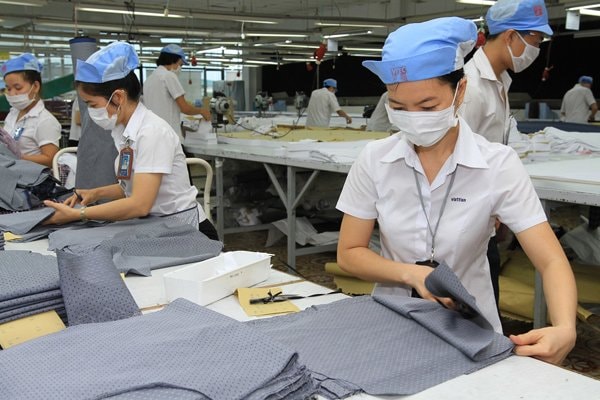Skills training to avoid losing jobs due to industry 4.0
Many labor experts believe that many jobs will disappear and be replaced by new jobs due to the impact of the automation revolution. Therefore, schools can choose a broad training model so that workers have the capacity to change jobs.
In a recent conference in Ho Chi Minh City on human resource training for Industry 4.0, education experts said that with this digital revolution, the boundaries between fields of study are no longer as clear as before but are mutually supportive. Therefore, the training program needs to change and supplement knowledge sections appropriately.
 |
| Female workers, especially in labor-intensive occupations, are vulnerable to losing their jobs to automation. |
When building training programs, universities and vocational schools must calculate the harmony between subjects. That means providing students with some skills so that they can work after graduation and still have a solid foundation of basic knowledge, not being eliminated by the whirlwind of science and technology.
Last April, the global dialogue "The Future of Work is the Future We Want" organized by the International Labor Organization (ILO) in Geneva (Switzerland) brought together the world's leading economists, leaders of countries and universities to discuss the future of the labor market in the face of the 4.0 technology revolution.
According to a report summarizing the recommendations presented during the two-day event, economists said that skills are key to ensuring that workers are not left out of the job market by the changes brought about by the technological revolution. Technological advances will disrupt the labor market and change all types of jobs today and the way they are performed. Therefore, the skills workers need to adapt to recruitment needs will also change. This highlights the role of training institutions and policymakers.
Universities and vocational schools need to keep up with the pace of technological change, thereby changing their training programs to provide workers with necessary soft skills such as communication, creativity, teamwork; management skills, business administration skills... These are skills that machines can hardly replace and help workers easily switch from one industry to another.
In addition, schools should also train students and workers in skills and information technology, digitalization, computer programming and computer science, as well as the ability to interact with machines. These are likely to be common skills across most jobs in the future.
Many argue that vocational training should be conducted in a way that provides broad skills rather than narrow skills that only serve a certain job position, positions that may change or disappear in the future.



.jpg)




